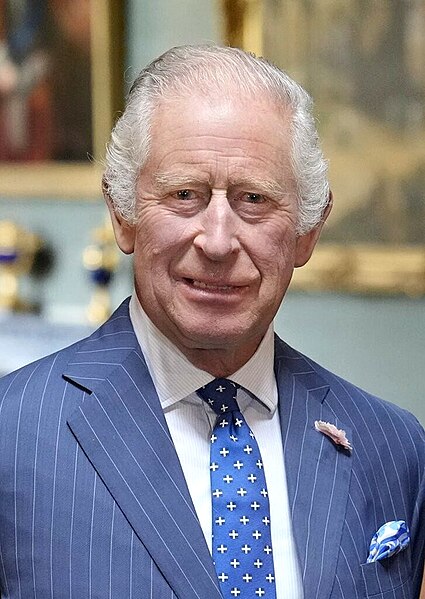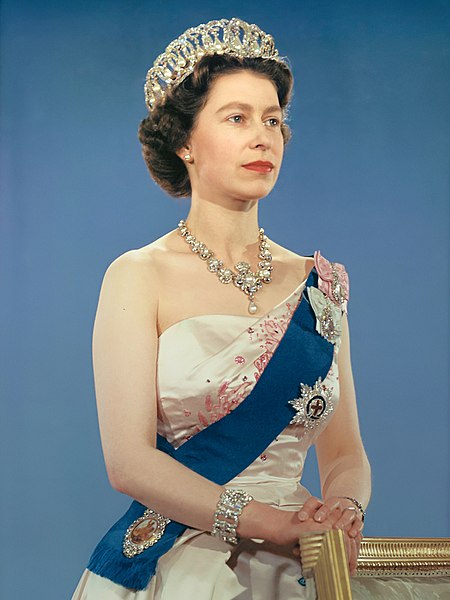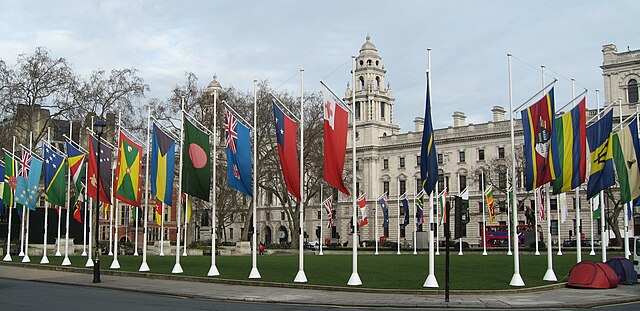The Head of the Commonwealth is the ceremonial leader who symbolises "the free association of independent member nations" of the Commonwealth of Nations, an intergovernmental organisation that currently comprises 56 sovereign states. There is no set term of office or term limit and the role itself has no constitutional relevance to any of the member states within the Commonwealth. The position is currently held by King Charles III.
Head of the Commonwealth
The Commonwealth prime ministers with King George VI at Buckingham Palace for the Commonwealth Prime Ministers' Conference, 1949
Queen Elizabeth II with the prime ministers of the Commonewalth, including Kwame Nkrumah (third from right), at Windsor Castle, May 1960
Elizabeth II's Canadian title, showing the Head of the Commonwealth, on the royal proclamation of the National Flag of Canada
The Commonwealth of Nations, often simply referred to as the Commonwealth, is an international association of 56 member states, the vast majority of which are former territories of the British Empire from which it developed. They are connected through their use of the English language and historical-cultural ties. The chief institutions of the organisation are the Commonwealth Secretariat, which focuses on intergovernmental aspects, and the Commonwealth Foundation, which focuses on non-governmental relations among member states. Numerous organisations are associated with and operate within the Commonwealth.
The prime ministers of five members at the 1944 Commonwealth Prime Ministers' Conference. (L-R) Mackenzie King (Canada), Jan Smuts (South Africa), Winston Churchill (United Kingdom), Peter Fraser (New Zealand) and John Curtin (Australia)
Queen Elizabeth II, the longest-serving head of the Commonwealth, was in office for 70 years.
Marlborough House, London, the headquarters of the Commonwealth Secretariat, the Commonwealth's principal intergovernmental institution
Flags of the members of the Commonwealth in Parliament Square, London








